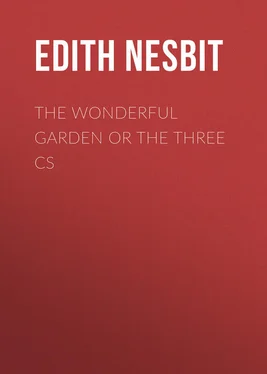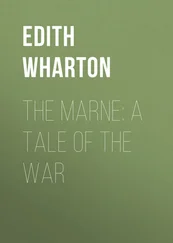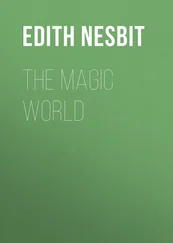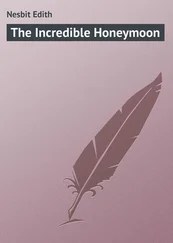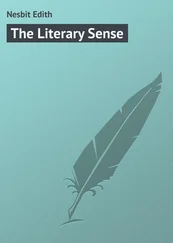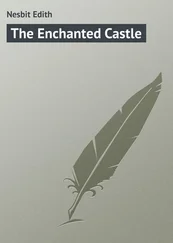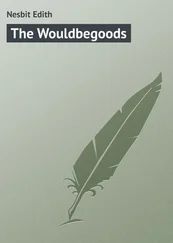Edith Nesbit - The Wonderful Garden or The Three Cs
Здесь есть возможность читать онлайн «Edith Nesbit - The Wonderful Garden or The Three Cs» — ознакомительный отрывок электронной книги совершенно бесплатно, а после прочтения отрывка купить полную версию. В некоторых случаях можно слушать аудио, скачать через торрент в формате fb2 и присутствует краткое содержание. ISBN: , Жанр: foreign_prose, на английском языке. Описание произведения, (предисловие) а так же отзывы посетителей доступны на портале библиотеки ЛибКат.
- Название:The Wonderful Garden or The Three Cs
- Автор:
- Жанр:
- Год:неизвестен
- ISBN:http://www.gutenberg.org/ebooks/52907
- Рейтинг книги:5 / 5. Голосов: 1
-
Избранное:Добавить в избранное
- Отзывы:
-
Ваша оценка:
- 100
- 1
- 2
- 3
- 4
- 5
The Wonderful Garden or The Three Cs: краткое содержание, описание и аннотация
Предлагаем к чтению аннотацию, описание, краткое содержание или предисловие (зависит от того, что написал сам автор книги «The Wonderful Garden or The Three Cs»). Если вы не нашли необходимую информацию о книге — напишите в комментариях, мы постараемся отыскать её.
The Wonderful Garden or The Three Cs — читать онлайн ознакомительный отрывок
Ниже представлен текст книги, разбитый по страницам. Система сохранения места последней прочитанной страницы, позволяет с удобством читать онлайн бесплатно книгу «The Wonderful Garden or The Three Cs», без необходимости каждый раз заново искать на чём Вы остановились. Поставьте закладку, и сможете в любой момент перейти на страницу, на которой закончили чтение.
Интервал:
Закладка:
Edith Nesbit
The Wonderful Garden / or The Three Cs
CHAPTER I
THE BEGINNING
It was Caroline’s birthday, and she had had some very pleasant presents. There was a blotting-book of blue leather (at least, it looked like leather), with pink and purple roses painted on it, from her younger sister Charlotte; and a paint-box – from her brother Charles – as good as new.
‘I’ve hardly used it at all,’ he said, ‘and it’s much nicer than anything I could have bought you with my own money, and I’ve wiped all the paints clean.’
‘It’s lovely,’ said Caroline; ‘and the beautiful brushes, too!’
‘Real fitch,’ said Charles proudly. ‘They’ve got points like needles.’
‘Just like,’ said Caroline, putting them one after the other into her mouth, and then holding them up to the light.
Besides the paint-box and the blotting-book, a tin-lined case had come from India, with a set of carved chess-men from father, and from mother some red and blue scarves, and, most glorious of imaginable gifts, a leopard-skin.
‘They will brighten the play-room a little,’ said mother in her letter. And they did.
Aunt Emmeline had given a copy of Sesame and Lilies , which is supposed to be good for girls, though a little difficult when you are only twelve; and Uncle Percival had presented a grey leather pocket-book and an olive-wood paper-knife with ‘Sorrento’ on the handle. The cook and housemaid had given needle-book and pin-cushion; and Miss Peckitt, the little dressmaker who came to the house to make the girls’ dresses, brought a small, thin book bound in red, with little hard raised spots like pin-heads all over it, and hoped Miss Caroline would be kind enough to accept.
‘The book,’ said Miss Peckitt, ‘was mine when a child, and my dear mother also, as a young girl, was partial to it. Please accept it, Miss, with my humble best wishes.’
‘Thanks most awfully,’ said Caroline, embracing her.
‘Thank you,’ said Miss Peckitt, straightening her collar after the sudden kiss. ‘Quite welcome, though unexpected; I had a bit of southernwood given to me this morning, which, you will find in the book, means a surprise.’
And it did, for the book was The Language of Flowers . And really that book was the beginning of this story, or, at least, if it wasn’t that book, it was the other book. But that comes later.
‘It’s ripping,’ said Caroline. ‘I do like it being red.’
The last present was a very large bunch of marigolds and a halfpenny birthday-card, with a gold anchor and pink clasped hands on it, from the boy who did the boots and knives.
‘We’ll decorate our room,’ said Charlotte, ‘in honour of your birthday, Caro. We’ve got lots of coloured things, and I’ll borrow cook’s Sunday scarf. It’s pink and purple shot silk – a perfect dream! I’ll fly!’
She flew; and on her return they decorated their room.
You will perhaps wonder why they were so anxious to decorate their room with coloured things. It was because the house they lived in had so little colour in it that it was more like a print of a house in a book – all black and white and grey, you know – than like a house for real people to live in. It was a pale, neat, chilly house. There was, for instance, white straw matting on the floors instead of warm, coloured carpets; and on the stairs a sort of pale grey cocoa-nut matting. The window curtains were of soft cotton, and were palely lavender; they had no damask richness, no gay flowery patterns. The walls were not papered, but distempered in clean pale tints, and the general effect was rather like that of a very superior private hospital. The fact that the floors were washed every week with Sanitas gave a pleasing wood-yard scent. There were no coloured pictures in the house – only brown copies of great paintings by Raphael and Velazquez and people like that.
The Stanmore children lived here because their father and mother were in India and their other relations in New Zealand – all except old Uncle Charles, who was their mother’s uncle and who had quarrelled with, or been quarrelled with by, their father and mother in bygone years.
The owners of the house, whose name was Sandal, were relations of some sort – cousins, perhaps. Though they were called Uncle Percival and Aunt Emmeline they were not really those relations.
There was one thing about this so-called aunt and uncle – they were never cross and seldom unjust. Their natures seemed to be pale and calm like the colours of their house; and though the children had meat every day for dinner, Mr. and Miss Sandal never had anything but vegetables, and vegetables are said to be calming.
Now India is a highly-coloured country, as you may have noticed in pictures, and the Stanmore children felt faded in that grey house. And that is why they loved colour so much, and made so much fuss about the leopard-skin and the Indian embroideries and the marigold flowers and the little old red book and the wreath of gold forget-me-nots outside it encircling the words Language of Flowers .
‘When Aunt Emmeline sees how beautiful it is she’ll want to have the whole house scarved and leoparded, I shouldn’t wonder,’ said Charlotte, hanging the pink scarf over a picture of a blind girl sitting on an orange, which is called ‘Hope.’
‘I don’t suppose so,’ said Caroline. ‘I asked her once what old Uncle Charles’s house was like, that mother said was so beautiful, and she said it was far too full of things, and somewhat imperfectly ventilated.’
‘It’s a pity Uncle Charles was quarrelled with, I think,’ said Charlotte. ‘I shouldn’t at all have minded going to stay with him. I expect really he likes nice little girls. I wonder what the row was all about, and why they didn’t all kiss and be friends before the sun went down upon – like we’re told to?’
I cannot tell you what the row was about, for I know no more than you do, or than Charlotte did. And you must have noticed that grown-up people’s quarrels are very large and most mysterious. When you quarrel with your brothers or sisters it is always about some simple thing – as, for instance, who left your paint-brushes in the water, or who forgot your Water Babies out in the hayfield, or whether it was you who upset the gum over your brother’s map, or walked on the doll’s house sofa that day when you all upset it scrapping, and the furniture was put back in a hurry. Anyhow, your quarrels are soon over, because quarrelling is so uncomfortable, and, besides, you have most likely been taught, as Charlotte had, that you must not let the sun go down upon your wrath. But with grown-up people it is different. They seem sometimes to have forgotten about the sun not going down, and their quarrels last on and on and on for weeks and months and years, till you would think that they must have forgotten what the fuss was all about. But they don’t, and when Aunt Jane comes to tea you will still hear fragments about how Uncle William behaved, and what a pity it was about Edward acting as he did. If the grown-ups notice you, they will tell you to run away and play. You will never hear what the quarrel was about, and if you did you wouldn’t understand, and if you understood you’d probably think it was a silly fuss about nothing, and wonder how they could have kept it up all these years – for it is as likely as not that Uncle William did that unfortunate behaving of his many many years ago, and that Edward acted in that extraordinary way long before you were born. The only thing you can find out for certain about these grown-up quarrels is that they seem to be always about money, or about people having married people that their relations didn’t want them to marry.
Читать дальшеИнтервал:
Закладка:
Похожие книги на «The Wonderful Garden or The Three Cs»
Представляем Вашему вниманию похожие книги на «The Wonderful Garden or The Three Cs» списком для выбора. Мы отобрали схожую по названию и смыслу литературу в надежде предоставить читателям больше вариантов отыскать новые, интересные, ещё непрочитанные произведения.
Обсуждение, отзывы о книге «The Wonderful Garden or The Three Cs» и просто собственные мнения читателей. Оставьте ваши комментарии, напишите, что Вы думаете о произведении, его смысле или главных героях. Укажите что конкретно понравилось, а что нет, и почему Вы так считаете.
